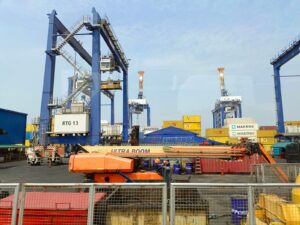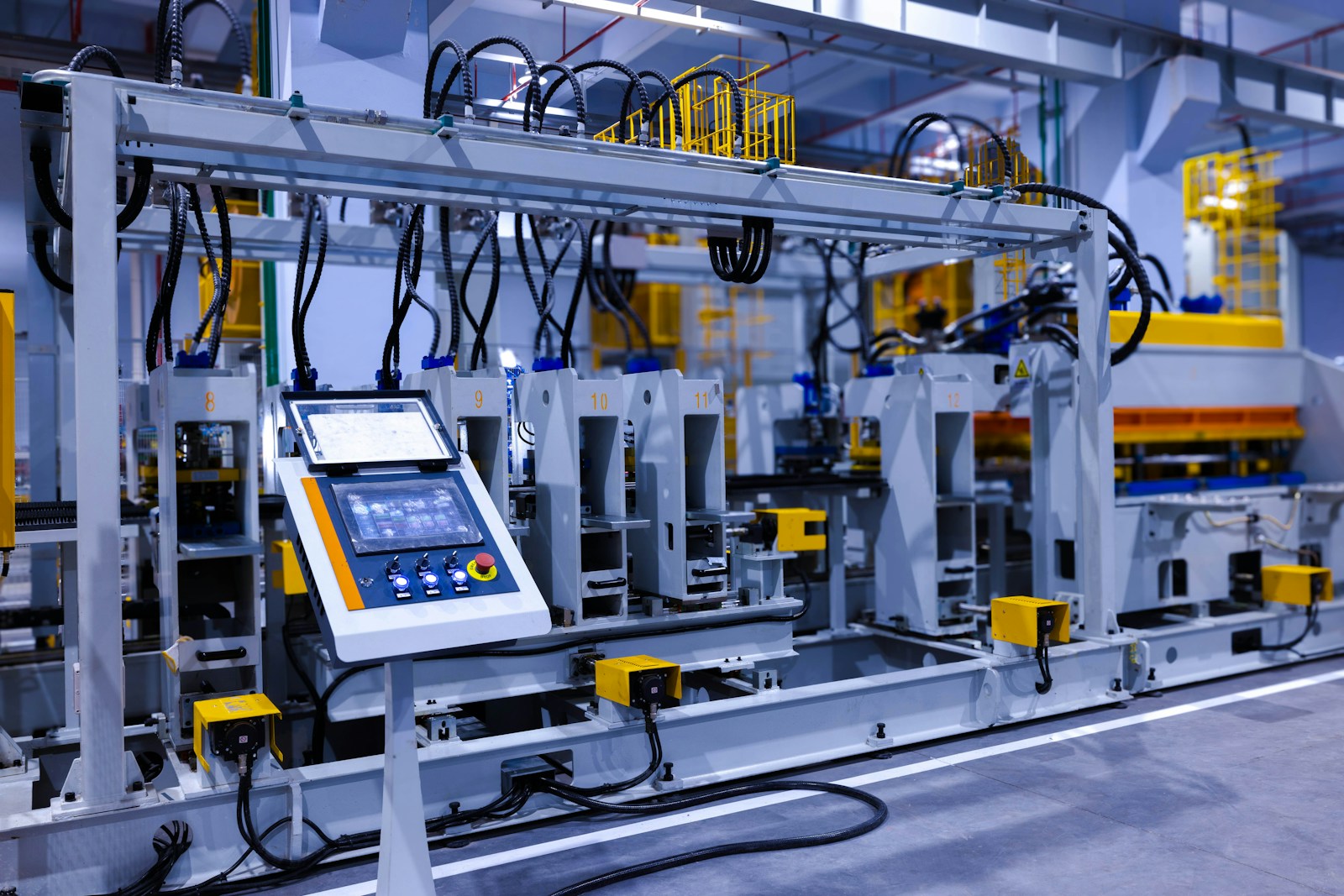Leveraging Technology in Swiss Logistics Operations for Business Success
Introduction to Logistics Technology in Swiss Companies
Logistics technology in Swiss companies is transforming the way businesses operate, significantly boosting overall business efficiency. As digital transformation continues to sweep across industries, Swiss companies are at the forefront, integrating advanced technologies into their logistics operations. This integration is not just about improving the speed of delivery or reducing costs but is also about enhancing the entire supply chain’s resilience and flexibility. Swiss businesses are leveraging a range of technologies, including automation, artificial intelligence, and blockchain, to optimize their logistics processes, ensuring that every component from warehousing to last-mile delivery is as efficient as possible. The adoption of these technologies is not merely a trend but a strategic move to maintain a competitive edge in an increasingly demanding market.
Technology-Driven Innovations in Swiss Logistics
Swiss companies are increasingly adopting logistics technology to refine their operations, focusing on innovations that drive efficiency and accuracy. One of the primary technologies reshaping logistics in Switzerland is automation. Automated systems in warehouses, such as robotic picking and packing, are minimizing human error and significantly speeding up the fulfillment process. These systems are also scalable, allowing companies to adjust quickly to fluctuations in demand without compromising on performance. Furthermore, artificial intelligence (AI) is playing a crucial role in predictive analytics, helping businesses anticipate potential disruptions and optimize routes, inventory levels, and resource allocation. AI-driven insights are enabling companies to make data-informed decisions that improve operational efficiency and reduce costs, thus enhancing overall business performance.
Another significant technological innovation impacting Swiss logistics is the use of blockchain technology. Blockchain’s decentralized nature ensures transparency and traceability throughout the supply chain, which is particularly beneficial for industries requiring stringent compliance, such as pharmaceuticals and food and beverage. By using blockchain, Swiss companies can monitor each step of the logistics process, from sourcing raw materials to the final delivery to the customer. This level of transparency not only builds trust with stakeholders but also helps in swiftly identifying and rectifying any inefficiencies within the supply chain.
The Impact of Logistics Technology on Business Efficiency
The integration of logistics technology in Swiss companies is having a profound impact on overall business efficiency. By automating repetitive tasks and utilizing predictive analytics, companies are able to streamline their operations, resulting in faster turnaround times and lower operational costs. This is particularly crucial in a market where consumer expectations for speed and reliability are at an all-time high. Enhanced efficiency in logistics translates directly to improved customer satisfaction, as businesses are better equipped to meet delivery deadlines and provide accurate tracking information.
Moreover, logistics technology is helping Swiss companies become more environmentally sustainable. By optimizing routes and improving load management, businesses can reduce their carbon footprint, aligning with Switzerland’s commitment to environmental responsibility. This not only improves the company’s public image but also meets the growing demand for greener logistics solutions from both consumers and regulatory bodies. In a broader sense, the enhanced efficiency driven by logistics technology enables Swiss companies to reallocate resources towards innovation and growth initiatives, further strengthening their market position.
Challenges in Implementing Logistics Technology in Swiss Companies
Despite the clear benefits, implementing logistics technology in Swiss companies is not without its challenges. One significant hurdle is the initial cost of investment in advanced technologies such as automation and AI. While these technologies promise long-term savings and efficiency gains, the upfront costs can be prohibitive for smaller businesses. Additionally, integrating new technologies into existing systems can be complex and time-consuming, often requiring a complete overhaul of legacy processes. Companies must also consider the training and upskilling of their workforce to effectively manage and operate new technology-driven systems, which can be a resource-intensive endeavor.
Another challenge is ensuring data security and privacy in logistics operations, especially when technologies like AI and blockchain are involved. As these technologies handle vast amounts of sensitive information, Swiss companies must adhere to strict data protection regulations to prevent breaches and maintain customer trust. The complexity of logistics technology also means that companies need to stay updated with the latest advancements and continually optimize their systems to remain competitive. This requires ongoing investment and a strategic approach to technology adoption, which can strain resources, especially in rapidly changing markets.
Future Trends in Swiss Logistics Technology
Looking ahead, Swiss companies are expected to continue embracing cutting-edge logistics technology to further enhance their operations. Emerging trends such as the Internet of Things (IoT) are set to play a pivotal role in the next wave of logistics transformation. IoT devices can provide real-time tracking and monitoring of goods throughout the supply chain, offering unparalleled visibility and control. This not only improves operational efficiency but also allows companies to respond proactively to potential disruptions, such as delays or temperature changes in perishable goods.
Additionally, the use of advanced robotics and autonomous vehicles in logistics is likely to grow, further reducing the reliance on manual labor and enhancing operational speed and accuracy. As the logistics sector becomes increasingly digitized, the importance of cybersecurity will also rise, prompting companies to invest in robust security measures to protect their operations from cyber threats. The future of logistics technology in Swiss companies will be characterized by greater connectivity, intelligence, and automation, driving continued improvements in business efficiency and competitive advantage.
Conclusion
In conclusion, logistics technology in Swiss companies is revolutionizing the way businesses operate, driving significant improvements in efficiency and overall performance. By embracing innovations such as automation, AI, and blockchain, Swiss companies are not only enhancing their logistics operations but also positioning themselves as leaders in a rapidly evolving market. While challenges such as cost and integration complexities exist, the benefits of adopting logistics technology far outweigh the drawbacks. As Swiss companies continue to invest in and develop their logistics capabilities, they will be well-equipped to meet the demands of the modern marketplace, ensuring sustainable growth and long-term success.
—
#logistics, #SwissLogistics, #TechnologyInLogistics, #BusinessEfficiency, #DigitalTransformation, #BlockchainInLogistics, #SwissCompanies












